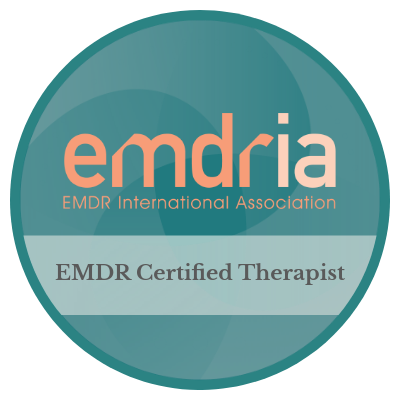Trauma Therapy
Trauma is an emotional response that occurs after a shocking or disturbing event and causes one to feel out of control and helpless. Most people will experience some form of trauma to some degree within their lifetime. Traumatic events can occur in many different forms from a specific event or from an accumulation of many more subtle events.

Big T traumas are those significant events such as a natural disaster, terrorist attack, sexual assault, etc. that leaves a person feeling helpless and possessing little control over their environment. Avoidance is a key feature for those who have experienced big T traumas. The avoidance can lead to life limiting behaviors and cause one to feel isolated and physically and emotionally depleted.
Little t traumas are events that push us beyond our ability to cope and cause emotional distress and disruption in daily functioning. Examples of little t traumas include interpersonal conflict, infidelity, divorce, financial worries, etc. People often don’t understand the effect that little t traumas can have on their lives. Many may assume they “should just get over it” or that they “should be stronger or more capable.” But little t traumas can be life altering and make living life difficult. It is the accumulating effect as well as the “push to deal with it” that has the most profound effect as it turns our anger inward and can lead to a lot of self-blaming behaviors. It can result in a slow “wearing away” of one’s joy in life and cause one to feel like they are “just tolerating” life or “just getting by.”
I offer a trauma treatment approach that focuses on both the Big T and little t traumas and can help you address the symptoms and work towards health and healing. My treatment approach includes a combination of several different modalities and is informed by many different trainings over the years.
Heal from the past and take back control of your life.
My Therapeutic Approach to Heal Trauma
I pull from a variety of trainings and modalities so you can connect with yourself, heal from the past, and live in the present. My multi-modal approach to the treatment of trauma also integrates other modalities that can extend the reach of treatment and help you learn more about connecting to yourself (a big part of the healing process from trauma) and better understanding your own internal emotional landscape so that you not only heal from the past but learn how to better navigate your own life going forwards.
EMDR
I am a certified EMDR therapist and an active member of EMDRIA, the International Association for EMDR training and development. I am always seeking various trainings to add to the core protocol of EMDR and, as such, I now offer FLASH as a companion technique to address the complex treatment of trauma.
My core training in EMDR is on what is called attachment focused EMDR (EMDR-AF), which focuses on the effects that early trauma can have on one’s attachment style. Attachment styles impact how we relate to others and the types of relationships we form. Our ability to attach to others and form either trusting friendships or long-term intimate relationships is significantly informed by the types of attachments we had in childhood. If you grew up feeling you could not trust an important caretaker, it can be difficult to open up and trust others as an adult. EMDR can help with this.

Polyvagal Theory
Polyvagal theory is a modality I often start with. It helps you learn how to work with your nervous system and understand the ways that trauma has affected you physically. Trauma not only affects us emotionally, but it also causes changes in our physiology by way of the autonomic nervous system. Trauma can cause an increase in hypervigilance and make it hard to feel relaxed due to an increased fear response. This internal response is managed automatically by the body. Once you better understand why it feels like your emotional reactions are in control of you, you can then begin to work with your body and start taking steps towards taking back your control and being more in tune with yourself.
Internal Family Systems
My approach also includes the integration of IFS and parts work. Just as the name suggests, we all have an “internal family” and learning more about the parts of yourself can help you further learn how to relate to yourself and work together as a team in getting your needs met and managing urges and desires. We all have various parts of ourselves that sometimes can have conflicting needs that make it hard to navigate getting them met while also needing to satisfy life responsibilities. IFS takes a unique perspective in learning more about all the various parts (or aspects) of a person and puts it into a framework that makes sense.

